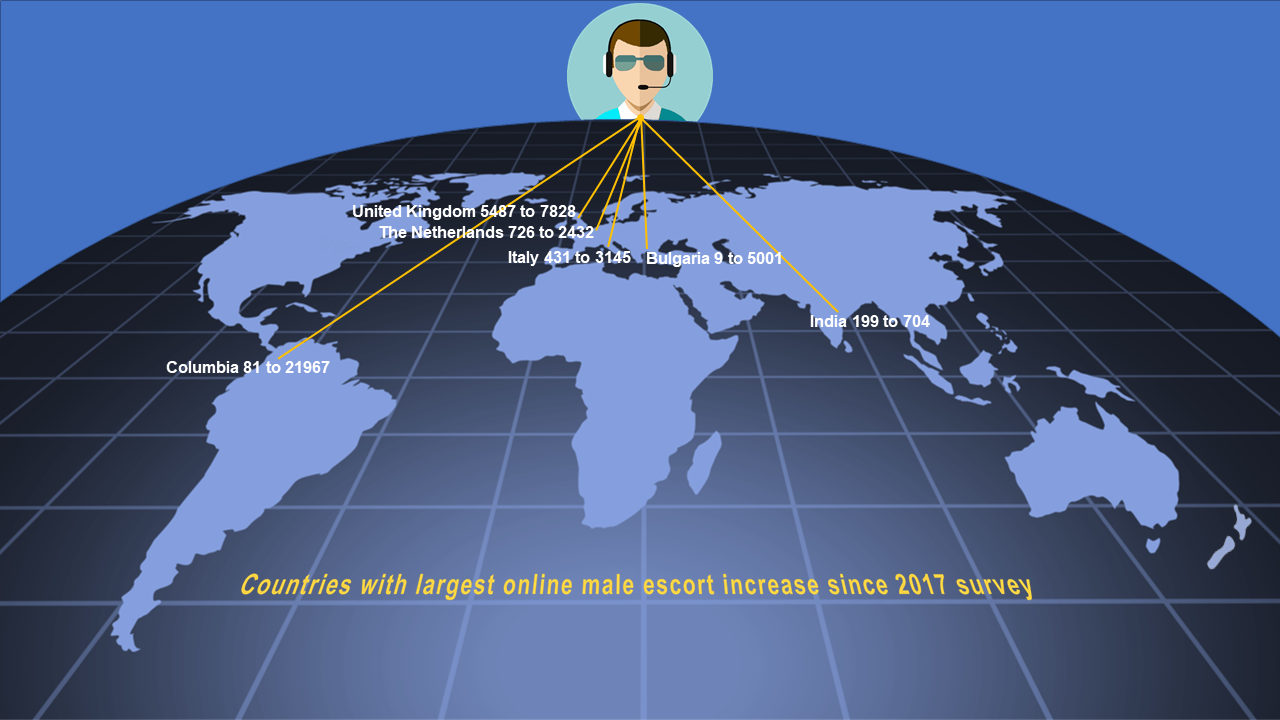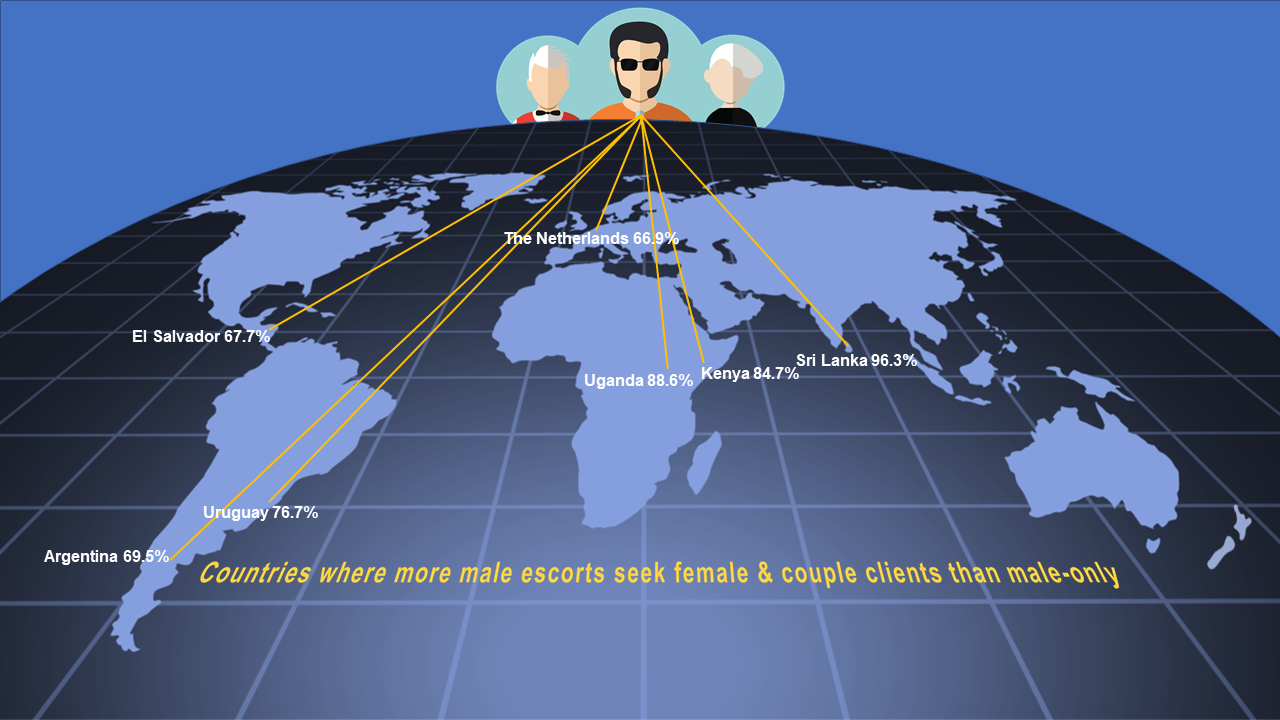Australia's population of online male escorts is growing with 668 profiles in 2018, up from 516 in the previous survey, according to the latest Male Escort Global Survey, conducted by Queensland University of Technology criminologists.
- 123,994 online male escorts in 65 countries - second global survey
- Percentage of male escorts in Australia catering to women and couples drops
- Australia has 668 male escorts advertising online, up from 516 in 2017
- Mexico, Colombia, the US, the United Kingdom and Spain have the highest number of escorts, comprising 74 per cent of the total male escorts.
- New website requirements in the US have negatively affected online male escort sites

While the numbers are up overall, the percentage of Australia's male escorts catering to women and couples has fallen from 24 per cent in 2017 to 21 percent in 2018, Professor John Scott and Adjunct Professor Victor Minichiello, from QUT's Crime and Justice Research Group, found in the latest survey which monitors online sex work market trends.
The latest survey counted 123,994 escorts in 65 countries advertising their services online, up from 105,009 in the 2017 survey.
Mexico topped the survey for online male escorts with 35,407; next came Columbia with 21,967; the United States of America with 19,983 (despite a decrease from the 2017 results); the United Kingdom 7828; and Spain, 6559.
Countries with the biggest increase of online male escorts since 2017 are Bulgaria, Colombia, India, Italy, the Netherlands, and the United Kingdom.
Professor Scott said the 2018 survey also found the number of male escorts offering services to women and couples had increased to 47,975 male escorts globally from the 2017 count of 32,948.

"The top five countries with the largest number of male escorts for women and couples were, in order: Columbia (11,937), Mexico (9,039), the United States (7,722), the United Kingdom (3,722), and Bulgaria (2,696).
"In Sri Lanka, of the 621 males escorts counted, 598, or 96.3 per cent, catered to women and couples. Only Panama and Taiwan of the 65 countries in the survey did not have any online male escorts advertising to a female and couple clientele."
Professor Scott said online escorting was a burgeoning industry which had implications for law enforcement and public health policy makers.
"In the interim between surveys, the US has introduced two pieces of legislation that change website requirements and exposed website owners to unclear criminal and legal risks," Professor Scott said.
"The passing of the FOSTA (Fight Online Sex Trafficking Act) and SESTA the (Stop Enabling Sex Traffickers Act) perhaps explains the removal or shut down of previously available sites hosted in the US.

"Some have transferred their operation from the US to other countries, where laws are more favourable to their business. The US still has 23 sites with 19,983 male escorts. This is possibly because these laws have seen a drop in male escorts from 2017's count of 25,356.
"Elsewhere, the online male escort industry appears to be flourishing with new entrants to the 2018 survey being Azerbaijan with 20 working escorts, the Dominican Republic with 106, Ecuador with 169, Egypt with 187, El Salvador with 266, Lebanon with 125, and Nigeria with 103," Professor Scott said.
"Excluded from the 2018 survey due to fewer than 10 online male escorts are Croatia, Jamaica and Paraguay."
Professor Scott said the survey measures the number of 'available services' rather than 'actual demand' or 'usage' of that service.
"The best demand indicator would be one that records and counts paid clients or a request for a service via a booking across a number of different spaces where sex work operates.
"Such a measurement is difficult to obtain due to ethical factors and escorts' or clients' willingness to share that information."
Professor Scott and Professor Minichiello's survey results and discussion blog is available here. Table of survey results.






